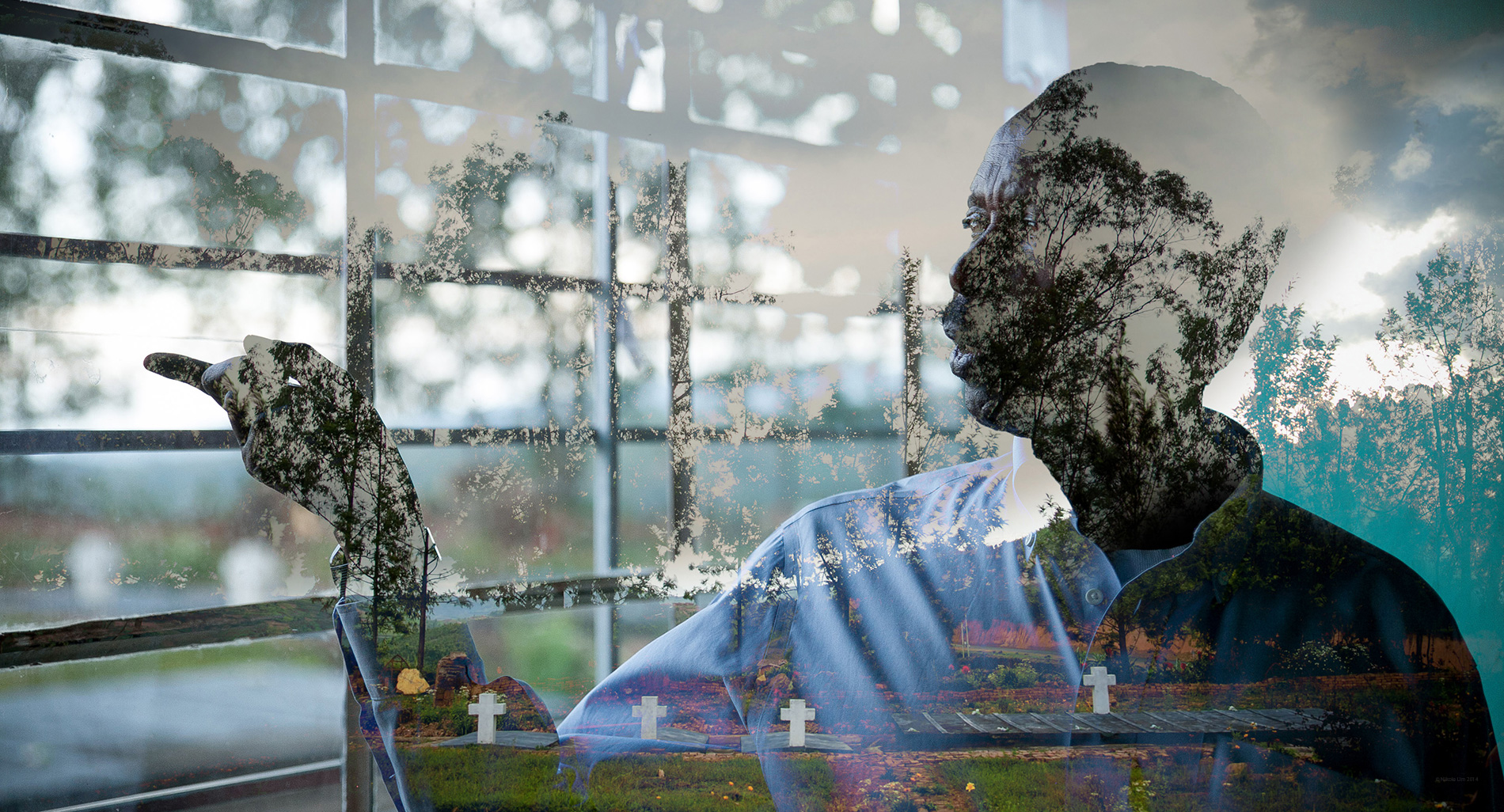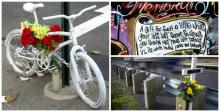Healing

At a church workshop last week, I set aside my carefully planned teaching and just let people talk.
It became clear that everyone had an old story they needed to tell. Until it was heard, no one in the room could or would move on to thinking about the future. And even when it was heard, half of them would keep cycling back to the old story.
I sensed that, for some, the old story contained an identity, in the sense of “this story is who I am.” I need to keep telling this story so that you know me. Until I am sure you’ve heard it, know me, and accept me, I can’t stop.
For some, the old story was the burden on their back, the cloud over their heads. This story explains why I fall short, seem hesitant or even paralyzed. If you know my story, maybe you can accept me and forgive me.
For some, the old story was the safe place, the known that kept the scary unknown at bay. As long as I keep telling this story and presenting the me that existed yesterday, I don’t have to contemplate the ways I am changing and the tomorrow that worries me.
It was like a case study in the long-ago classic, “I’m OK — You’re OK.” People wanted to know they were OK — acceptable and maybe someday even loved.
I think back to a recent lunch with the rector of the local Episcopal church, where I kept peeling the onion, telling her one thing about myself and then, if she accepted that, telling her something more. She was doing the same. If we know each other and still accept each other, then we can be in relationship.

THE SENATE Intelligence Committee finally released in December its long-delayed report on “enhanced interrogation techniques” employed by the CIA in the U.S. global “war on terrorism.” That these techniques—including waterboarding, “rectal feeding,” weeklong sleep deprivation, threats to harm detainees’ children—constituted torture, in clear violation of the Geneva Conventions, is a reality that is difficult to deny. Sen. Dianne Feinstein and her colleagues should be commended for facing and exposing the grim truths behind our nation’s post-9/11 conduct.
Unfortunately, recent polling has revealed some disturbing attitudes among Americans on this issue—particularly among Christians. A Washington Post/ ABC News poll conducted shortly after the Senate report’s release found that 59 percent of Americans believe the CIA’s treatment of suspected terrorists was justified, compared to just 31 percent who believe it was unjustified. Startlingly, among Christians who were polled, that number rises to between 66 percent and 75 percent who believe the techniques were justified. In this same poll, 53 percent of respondents indicated they believe these techniques produced important information that could not have been obtained any other way, compared to just 31 percent who disagree.

We’ve lost Leonard Nimoy. Justly famous as Star Trek’s iconic Mr. Spock, he was also a poet, musician, and photographer. And he was my role model.
I was 10 when I discovered Star Trek—and I immediately gravitated toward the taciturn Vulcan who embraced logic and science even as he wrestled with deep human emotion. The resemblance between Spock and the pre-teen me would have been startling had I recognized it as such; instead, I only saw a character who embodied the conflicts I felt—intellectually and emotionally.
Nimoy was a supporter of equal rights. For example, he convinced Paramount to end the pay inequity Nichelle Nichols experienced during the original Star Trek series. Later, he refused to sign on to the animated Star Trek series until Nichelle Nichols and George Takei were hired to voice their own characters. Away from Star Trek, he challenged “definitive” elements of beauty with The Full Body Project photographs.
But why did Nimoy—why does any man—work to end sexism and discrimination?
Simply: It’s the right thing to do. That ought to be all anyone needs. At the very least, he did it for co-workers whom he respected.
Men who want to “Live Long and Prosper” work to make that possible for everyone, so that their claims to value justice for all have integrity.

I’m starting to think that Che Guevara and the Jesus of the Gospel according to Mark have an awful lot in common.
I should explain, first, that I’m in the first month of My Jesus Project, a year-long effort to more deeply live into the life, teaching and example of Jesus through prayer, study, and action. Each month, I explore a new dimension of Jesus with a mentor. This month is 'Jesus the Radical' with Christian Anarchist Mark Van Steenwyk. So of course coming from this point of view is going to impact my month's reading of the Gospel according to Mark. It's supposed to.
But in my 43 years of being exposed to the Bible, never have I seen the Jesus of Mark in the way I’m starting to see him now.
There are two recurring themes throughout the first several chapters in Mark: crowds and healing. The crowds following Jesus represent his growing power and influence — a growing threat to the occupying authorities of the Roman Republic — and though there are many general accounts of healing, the ones explicitly detailed in Mark all point to some act of political or religious defiance in the midst of the miraculous act of compassionate healing.
He’s either claiming the authority to forgive sins in front of religious leaders, healing on the sabbath, coming in contact with “unclean” women (like the bleeding woman in chapter five) without undergoing a cleansing mikvah ritual immediately afterward, or he’s touching dead bodies (also chapter five) without cleansing himself as well. So far, throughout the first half of Mark, every account of healing or forgiveness stands in direct defiance of some political or religious rule.
All human laws bow at the feet of the authority of God, which is not a rule of law, but rather a subversive, paradigm-shifting “from the bottom up” rule of love and compassion for others, first and foremost. Period.

This week, the Baltimore Ravens terminated the contract of star runningback Ray Rice after video of Rice beating his then-fiancée Janay emerged online. Rice had previously been suspended for two games for the assault. With the release of the video, media scrutiny swiftly turned to his now-wife, speculating over why she would marry her abuser.
Beverly Gooden, a human resources manager and blogger, had a different response. Herself a survivor of domestic abuse, Gooden began tweeting of her own experiences, each one a vulnerable explanation: #WhyIStayed.
Gooden wrote, “I can't speak for Janay Rice, but I can speak for Beverly Gooden. Why did I stay? … Leaving was a process, not an event. And sometimes it takes awhile to navigate through the process. ...I hope those tweeting using #WhyIStayed find a voice, find love, find compassion, and find hope.”
We would all do well to listen. Some of the most powerful tweets below.
IT’S A MAY evening on the farm. My husband’s planting tomatoes and our son needs a bedtime story, but I’m completely occupied with pictures of war. I’ve cleared the piles of laundry from the kitchen table so our friend Adam can spread out his albums. There are photos of Adam in his tidy platform tent, of brown mountains in the distance, and dozens of pictures of children grinning on the other side of razor wire.
“This is an Aardvark,” he says, pointing to a gargantuan armored vehicle as he describes the flails that detonate buried mines. “What does that do to the soil?” I ask, because this is what you wonder when you and your family have been Mennonite farmers since the Reformation. There are a few more photos before I finally get it. Adam is showing me Bagram Air Base, the U.S. military hub in Afghanistan, surrounded by minefields and littered with burned-out tanks and planes, the wreckage of war from the Soviets. No one farms here, or has, or will for a long, long time.
FOR THE PAST three seasons, Adam McDermott has come to our farm in Central Pennsylvania’s Stone Valley every Friday morning to harvest vegetables for the food bank. We always chat while we bunch beets or pick green beans, and now I wonder why we’ve never talked about his years in the Army.
“This farm has definitely been part of my therapy,” he tells me, while offering a brief sketch of his months in Iraq: taking heavy equipment down unfamiliar roads to set off hidden explosives, being promoted to sergeant, and then losing three friends when a bomb shattered their Humvee. Adam came home in 2008 with Post-Traumatic Stress Disorder (PTSD) and an alcohol addiction. “A lot of guys struggle with alcohol,” Adam says. “In the military you have camaraderie and a sense of purpose. But when you get back, there’s just this big void.”
"Here's how you bring light into the world," says a scruffy-bearded man in shirtsleeves and a knit cap on a Brooklyn rooftop. "First, you get up in the morning and you scream!" His mischievous grin melts into something more ethereally content as he screams. At length.
He's had plenty of practice screaming — he does it for a living.
The man is Yishai Romanoff, lead singer of the hassidic punk band Moshiach Oi and one of the half-dozen artists, activists, and culture-makers profiled in the documentary Punk Jews.
The phrase can seem like an oxymoron: The essence of punk is to challenge inherited convention, yet adherence to rich traditions of convention is the common through-line of all of Judaism's myriad flavors.
FORGIVENESS IS wholeness, Nobel Peace Prize winner Archbishop Desmond Tutu and his daughter, Anglican minister Rev. Mpho Tutu, write in their newest collaboration,The Book of Forgiving. Scientific research shows that forgiveness has the power to transform us in spiritual, emotional, and even physical ways. That evidence is paired with the Tutus’ collective experience in counseling, studying, and teaching and their personal stories about the difficulty of forgiving. Archbishop Tutu writes about learning to forgive his abusive father. Mpho, who writes about learning to forgive the man who murdered her housekeeper in her home, is pursuing a PhD in the topic of forgiveness.
The book lays out some simple but critical truths: Everyone can be forgiven. Everyone deserves forgiveness. You must be willing to forgive. Forgiveness is not a weakness, nor a luxury. Forgiving others is a way to practice forgiving yourself. Through forgiveness, we all become whole again. Unconditional forgiveness is an act of grace that frees all parties from further indignity, and from self-blame and corrosive hatred.
The path to forgiveness seems simple enough when you can navigate it in four easy-to-follow steps: Tell the story. Name the hurt. Grant forgiveness. Renew or release the relationship. The path is also—sorry—a bit pedestrian. That doesn’t mean the route map isn’t useful. But the book will be most applicable if you have struggled to forgive or feel that even contemplating forgiveness is an impossible burden weighing heavy on your heart and soul. If you’re carrying a load you can’t seem to gracefully shrug off or leave by the side of the road, the Tutus can help you chart the course.

“I AM A storyteller,” says Daniel Beaty, “and my purpose in the world is to inspire people to transform pain to power.”
He was first inspired to share his stories when his third-grade teacher showed a videotape of Martin Luther King Jr.’s “I Have a Dream” speech. Now as a writer, actor, singer, teacher, and motivational speaker, his storytelling is expressed in a dizzying array of different forms and outlets. The week in April that Sojourners’ editorial assistant Rebecca Kraybill interviewed him, Beaty was doing daily performances in Los Angeles of a one-person play he wrote on the life of performer and activist Paul Robeson, “The Tallest Tree in the Forest” (in which he plays 40 characters and sings 14 songs) and, during the day, taping for a Ford Foundation-funded documentary on work he does with children of incarcerated parents.
This was just a fortnight after Beaty finished a six-week speaking tour in support of his memoir, Transforming Pain to Power: Unlock Your Unlimited Potential (Penguin-Random House). He’s also the author of a children’s book released in December 2013 by Little, Brown and Company, Knock Knock: My Dad’s Dream for Me, with graphics by award-winning illustrator Bryan Collier, which is an adaptation of a poem Beaty wrote about his experience growing up with an incarcerated father. “Knock knock down the doors that I could not” is one especially poignant line the father in the book writes to the son; it carries a call to healing and liberation that is found in all of Beaty’s work.
Kraybill talked with Beaty about the effects of mass incarceration on families, the power of a “theater sanctuary,” and how the arts call us toward “the capacity to do better.”

My Dear Friend,
It breaks my heart to be the one to tell you this, but I figured you might be more receptive hearing this from me. I think you already know what I'm about to tell you — it's nearly impossible you couldn't know with how loud everyone's whispers have become.
Something is terribly wrong! You are sick.
I know this isn't the news you were hoping for, but it's the truth. With this in mind, I feel now, it is more important than ever that I lay things out for you — no matter how much it pains me.

To the dying church,
Sometimes you have to get worse before you get better. You are dying because you’ve been applying band aids for a far deeper problem. You are consistently doling out superficial remedies for surface wounds when the source of pain lays untreated.
Church, you have confused biblical hope for optimism. When hurting people walk through your doors, you play the positive thinking guru and dispense quick fixes with inspirational quotes. You provide cheap grace and empty promises that are driving people out your doors.
You have mistaken confidence with certitude. When people come with authentic questions, you forsake healthy dialogue in exchange for a veneer of harmony. You post your doctrinal statements at your gates and demand unsure people to come in or stay out. The resulting homogenous bubbles you’ve created are sure to burst.

Next to a glass casing displaying neatly stacked skulls, Rwamasirabo flipped through the pages of a dusty notebook holding the church’s paperwork. He pulled out a church program. On it, was a photo of his former friend, Father Athanase Seromba, a 31 year-old Roman Catholic priest who was responsible for killing 3,000 of his Tutsi congregation members. The priest wore a black oxford with a white clerical collar accessorized with a distrusting mustache and a toothy smile seething betrayal. Rwamasirabo stuffed the program back into the notebook.
Rwamasirabo’s thin stature commands respect and the lines in his face convey tragic sorrow. His careful, soft-spoken voice expressed feelings of loss. With worn hands, Rwamasirabo searched through a pile of salvaged rubbish to find the chalice from which communion was served.
It reminded him of his daughter.

Create your own memorial prayer altar in remembrance of those you love and will never forget.
I WAS PRESENT when my uncle died. I didn’t plan to be, but once I understood his end was near it felt right. I had been the flower girl at my aunt and uncle’s wedding, the ritualized beginning of their life together, so witnessing this milestone event of my uncle’s death seemed appropriate. And I wanted to support my aunt, I told myself.
My aunt is my father’s youngest sister. They are the last living siblings from nine brothers and sisters; both their parents are also long gone. My aunt wears this fact like a veil. Sometimes it’s barely noticeable; sometimes it’s the only thing she sees. While my parents’ divorce had kept me apart from my aunt for much of my life, it seemed important, the fury of those old family dramas now covered with dust, to offer my aunt support in her husband’s last days, hours, then moments. She was hardly alone. My aunt has three grown daughters, and my uncle comes from a huge family, most of whom were packed into the hospital room where he died at 2:20 p.m. on Sept. 22, 2013.
My aunt told me she was happy to have me, a representative from her side of her family, present. So I was there. For her, I said.
But to tell the truth, I was there to learn. I have plenty of information about the beginning of life. People in my generation received hours of tutoring, lecturing, indoctrinating, and warning about puberty, childbirth, birth control, and “safe sex.” Although we were actually not given much information about sexuality—I had to learn that on my own. But I knew even less about death.
WHEN CHIEF MASTER Sergeant Harry Marsters returned in 2008 from his time in Iraq, he knew something wasn’t right. At 54, the 32-year veteran of the Air Force—with 27 years full time in the military and the remainder as a reservist with the Air National Guard—felt that as one of the “older folks” he knew what to expect upon return from his assignment with the communications squad at the Kirkuk Regional Air Base in northern Iraq.
Marsters’ squadron trained Iraqi forces in the operation and maintenance of aerial surveillance equipment on the base, which housed 1,000 Air Force and 2,500 Army troops. As first sergeant he acted as a liaison to the Air Force troops and ensured the well-being of those stationed there. It was a job he relished, pouring care into building connections with the airmen and women, spending time with the chaplains, and coordinating recreation and morale-building activities.
Though Air Force personnel never left the base, they were subjected to the ever-present threat of randomly timed mortar rounds launched by insurgents. They also took part in nighttime “patriot details” in which Air Force personnel and soldiers lined the base’s runway as the bodies of fallen soldiers were loaded onto planes for transport back to the United States. But Marsters says he was most upset by what he felt was harsh treatment of the Iraqi nationals who came to work on the base.
“They were treated like criminals,” he says of the extensive searches and intimidation Iraqis received when going through base security. “Everyone in Iraq is not evil, bad, and nasty. It’s a very small group of people who are raising hell and trying to hurt the country. The average person is just trying to make some money and take care of his or her family.”


I wasn’t really expecting painful things to happen to me.
I knew that pain was a part of life, but — thanks in part to a peculiar blend of “God-has-a-plan” Southern roots, a suburban “Midwestern nice” upbringing, and a higher education in New England stoicism — I managed to skate by for quite some time without having to experience it.
After a handful of traumas in the last five years, things look different now. Trauma upends everything we took for granted, including things we didn’t know we took for granted. And many of these realities I wish I’d known when I first encountered them. So, while the work of life and healing continues, here are ten things I’ve learned about trauma along the way.

The Native American narrative remains largely unknown in U.S. majority culture. It is glaringly absent in most school curriculums, and remains unheard in modern dominant politics. One crucial stream of Native culture I’ve recently come to learn about is the destructive legacy of Christian-run Indian boarding schools.
What began with genuinely good intentions (in those days, “European” norms were viewed as superior, “sameness” seemed like a good idea, and the threat of legitimate genocide lingered over tribes) rapidly deteriorated, with Christian boarding schools becoming institutions of forced assimilation and abuse.
Beginning in the 1800s and lasting into the 20th century, Native children were forcibly removed from their families and sent to live in boarding schools. Finding the task of “civilizing” Native adults beyond its ability, the federal government delegated the task of “normalization” to churches, which could educate, or, inculcate, children from a young age.

THURSDAY NIGHT is baking night at Panadería El Latino on 11th Street. Early Friday morning, the bakers pull their weekend supply of pan dulce from the ovens. Racks and racks of conchas, cuernos, and galletas—in eye-popping yellows and pinks—are set out to cool. The entire street is redolent with yeast, cinnamon, and sugar.
From the outside this bakery looks like any another boarded-up building. “The only indication this isn’t a crack den,” one local points out, “is the overwhelmingly delicious smell of baked goods.” El Latino distributes to corner bodegas across the metro D.C. area. But, if you brave the exterior, you can get three sweet rolls for a buck. Bread of heaven!
Extending our tables to feed the multitudes is a practice Jesus asks us to imitate (Matthew 14:16). When Jesus hosted that feast for “more than 5,000” with “only five loaves and two fish,” it was called a miracle. But the mystery wasn’t in magic math. Rather this is a tale of two parties. In Matthew 14:13-21, the dilemma was that there was too little food and too many people. But in the preceding verses, there was too much food and too little humanity.
Matthew 14:1-12 tells the story of Herod’s birthday party. Here, only the upper 1 percent, the elite and powerful, are gathered in a setting overflowing with the rarest wines, mountains of meat, and the finest breads. But Herodias’ daughter demands a different dish. The main course is served to her on a platter: It is the head of John the Baptist.